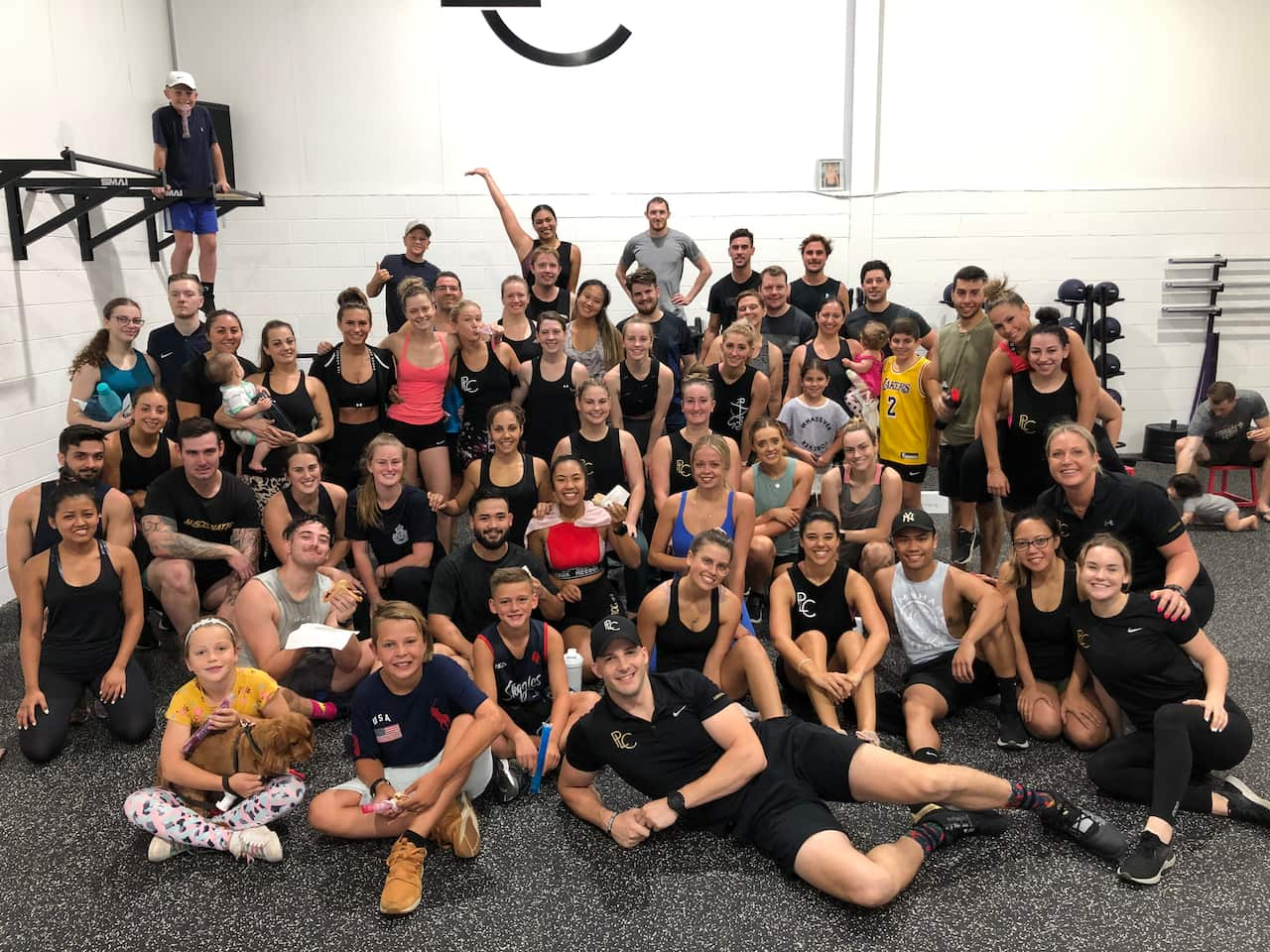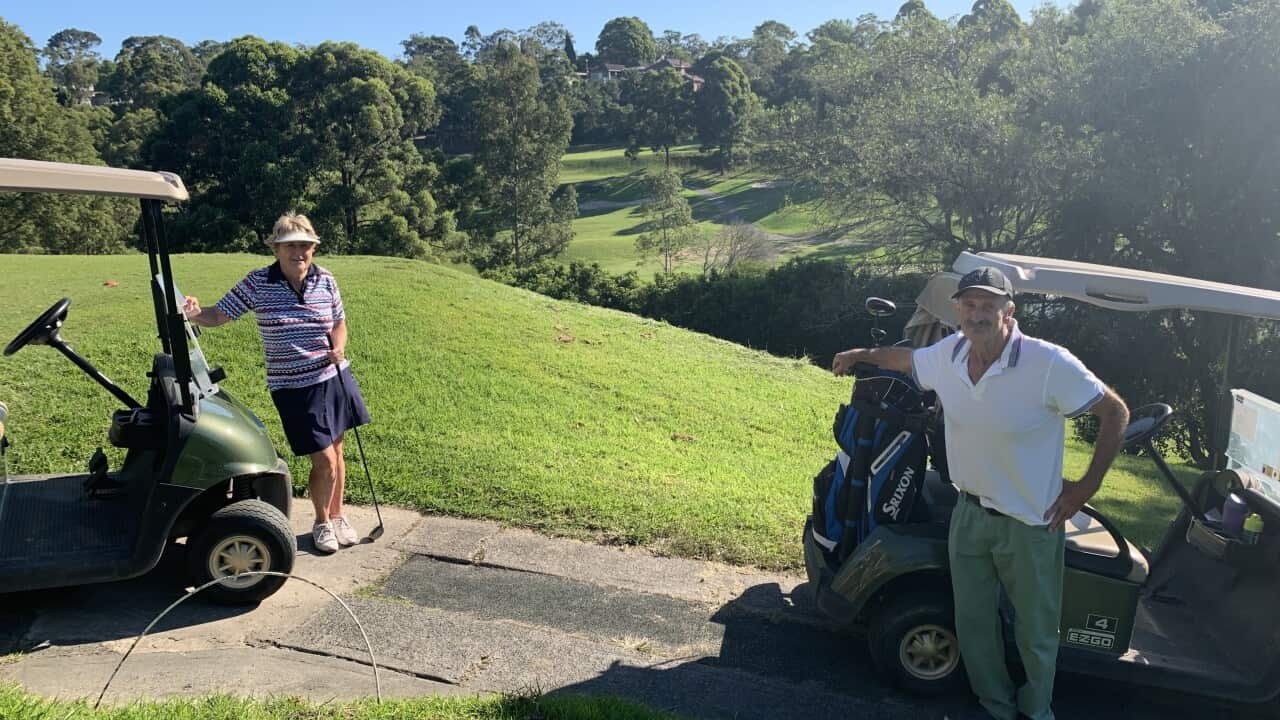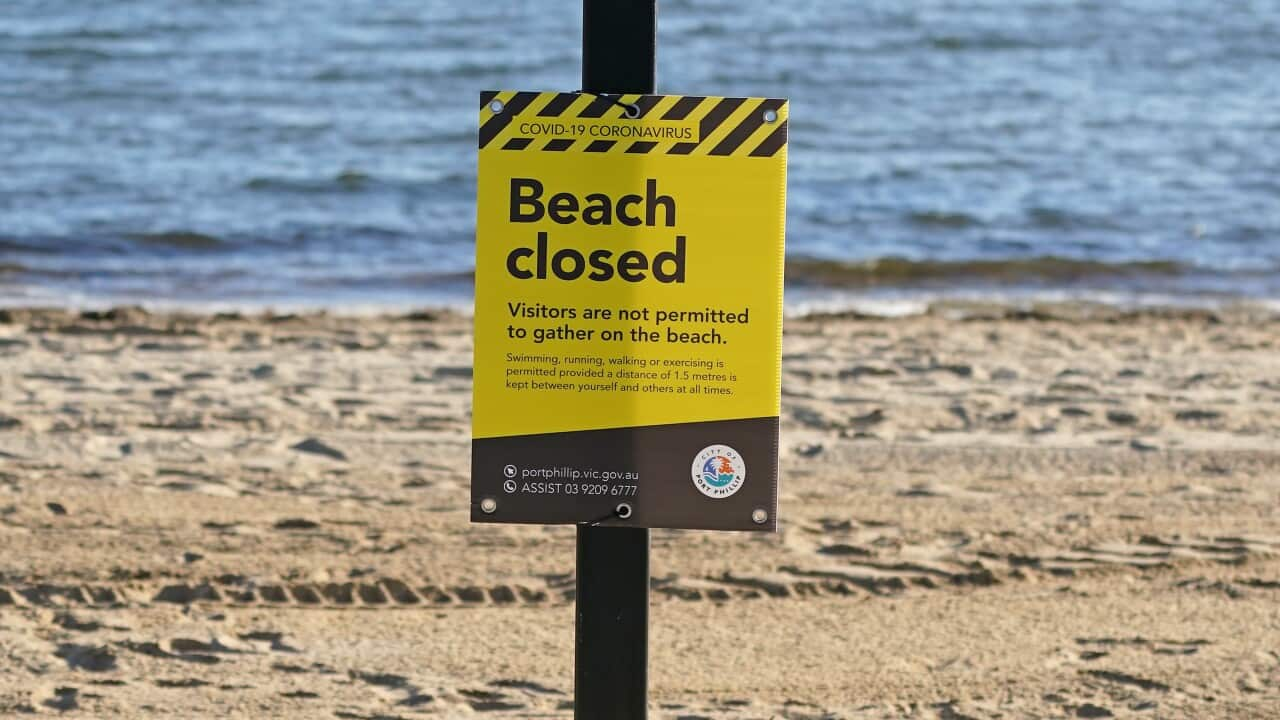Gyms are closed, but parks are open. Personal training is allowed, but only on a one-on-one basis. Public swimming pools are no-go zones, but golf clubs are open (in most states). Some beaches are closed, but not all of them.
If you find the coronavirus restrictions around exercise confusing, you're not alone. A lot has changed in the past month.
John Salter, the co-owner of PLC Gym in Sydney's north-west, told SBS News: "I think it was 23 March when we received the notice we had to close. We went from 500-people gatherings to 100, to 25 and then it was ten, and now it is two."
What are the official guidelines?
Currently, one of the exceptions to the Australian government's stay at home advice designed to stop the spread of COVID-19 is "going out for personal exercise in the neighbourhood, on your own, or with one other".
And if you are with one other person who isn't from your household, like a personal trainer, social distancing requirements must be observed.
"Australians are permitted to leave home for the essentials, such as exercising - in a public space such as a park, limited to no more than two people," the government's Department of Health website states.
It means people shouldn't, for example, leave home to drive to a coastal walk to do their exercise, or meet up with friends for an informal kick-around at a park.
The exception to the rule
While gyms and swimming pools are closed, golf clubs are one of the very few recreational sporting venues still allowed to be open in most states - and they must enforce social distancing measures.
Players can only play in pairs, and only one person is allowed in each golf cart.
Aaron Vatner, the General Manager of Chatswood Golf Club in Sydney, says the club has had to change its operations to allow people to continue to use the course.
"It has changed how people get on to the golf course," he said.
"We do have pressure on our timesheets at certain times, but we're adjusting them and making changes to make sure that we don't have congestion around the club and the course, and to make sure we don't have people in groups."
Golf clubs and facilities are however closed in Victoria, under the state's stage three restrictions. Golfer Henry Tsang believes that golf clubs are a great asset.
Golfer Henry Tsang believes that golf clubs are a great asset.

Source: Facebook
"We are so fortunate that we have golf courses," he said.
"Every council has an obligation to provide recreation and if we don't use these facilities when they are available, we are neglecting an asset we have.
He believes such opportunities should be promoted as much as possible while other forms of exercise are on the backburner.
"I'm urging that all governments of all levels shouldn't look after not just whether there is enough ICU in hospitals or not, but to give people a chance to exercise ... and golf is a great thing."
How else can you stay active?
Mr Salter says with so many people working from home, movement, in general, is down.
I think firstly, a healthier body is a stronger one against any virus, not just COVID-19," he said. "It's important to maintain that level of health." "One thing we're seeing is a massive drop in our normal daily exercise and movement. A really simple way to look at it would be to use steps," he said.
"One thing we're seeing is a massive drop in our normal daily exercise and movement. A really simple way to look at it would be to use steps," he said.

Gym owner John Salter works out at home. Source: Supplied
"An office worker, for example, who goes to the gym a few times a week, they're looking at around 8,000 to 12,000 steps a day."
"Take that away, we're seeing people who are moving in the 2,000 to 4,000 steps a day, if they're not exercising."
What about online classes and equipment?
Mr Salter, and his clients, have been forced to adapt.
The gym now runs online classes via video, as well as a regular online coffee catch ups, so its members can check in on each other, and hold each other accountable to their exercise commitments. Exercise and gym equipment has been selling fast, as people try and set up to exercise more at home. But Mr Salter says it doesn't have to be that complicated.
Exercise and gym equipment has been selling fast, as people try and set up to exercise more at home. But Mr Salter says it doesn't have to be that complicated.

Online exercise is the new norm. Source: Supplied
"All you need is enough space to lie down on the floor," he said.
"Our online product is predominantly bodyweight exercises and the internet itself is full of free resources for bodyweight exercise as well. "If you have weights then great, but if not, there are a million things you can use instead.
"If you have weights then great, but if not, there are a million things you can use instead.

Group classes are a thing of the past. Source: Supplied
"We've had people using anything from a case of wine, to a baby, and everything in between. It doesn't have to be a perfect set of dumbbells or a barbell to get the job done."
What about mental health?
Staying physically active also has benefits for mental wellbeing.
Dr Aliza Werner-Seidler, a clinical psychologist from the Black Dog Institute said: "What we know is that regular exercise of any intensity, it can even be a gentle walk, can prevent future episodes of depression." "So even if somebody is able to spend 20 minutes, three times a week, going for a walk, that actually seems to have a protective effect over the future development of depression and mental ill-health.
"So even if somebody is able to spend 20 minutes, three times a week, going for a walk, that actually seems to have a protective effect over the future development of depression and mental ill-health.

Dr Aliza Werner-Seidler says Australians need to think about their mental and physical health. Source: Supplied
"From that perspective, staying fit and healthy is incredibly important for the mind, not just the body."
Dr Werner-Seidler says mindfulness exercises like meditation can also help focus the mind on the present, which can help relieve stress and anxiety as Australia tackles its COVID-19 outbreak and people adapt to lockdown measures.
"Some people describe it as giving the brain a bit of a break, so even if it's something you can do for half an hour a day ... like doing a breathing meditation where you slow down and focus on your breath, even just for a few minutes, can be really grounding," she said.
"It helps you re-focus your attention to the present moment and what you're doing, and while you're doing it, you can't really be worried about what's coming in the future, or worried about what's happened in the past, because you really are re-focusing your attention on the current moment."
The Department of Health advises those feeling worried or anxious about COVID-19 to visit .
People in Australia must stay at least 1.5 metres away from others and gatherings are limited to two people unless you are with your family or household.
If you believe you may have contracted the virus, call your doctor (don’t visit) or contact the national Coronavirus Health Information Hotline on 1800 020 080.
If you are struggling to breathe or experiencing a medical emergency, call 000. SBS is committed to informing Australia’s diverse communities about the latest COVID-19 developments.



